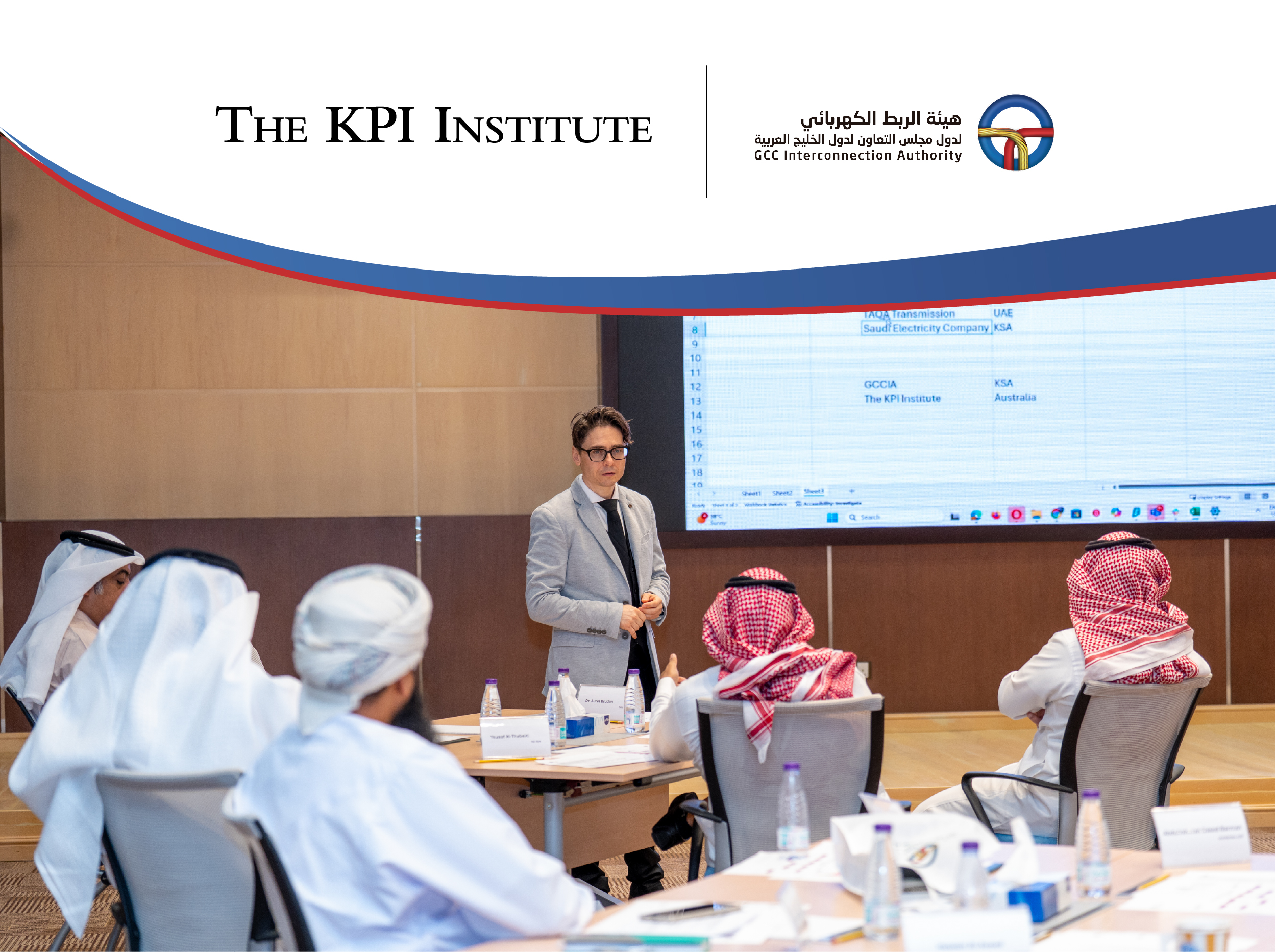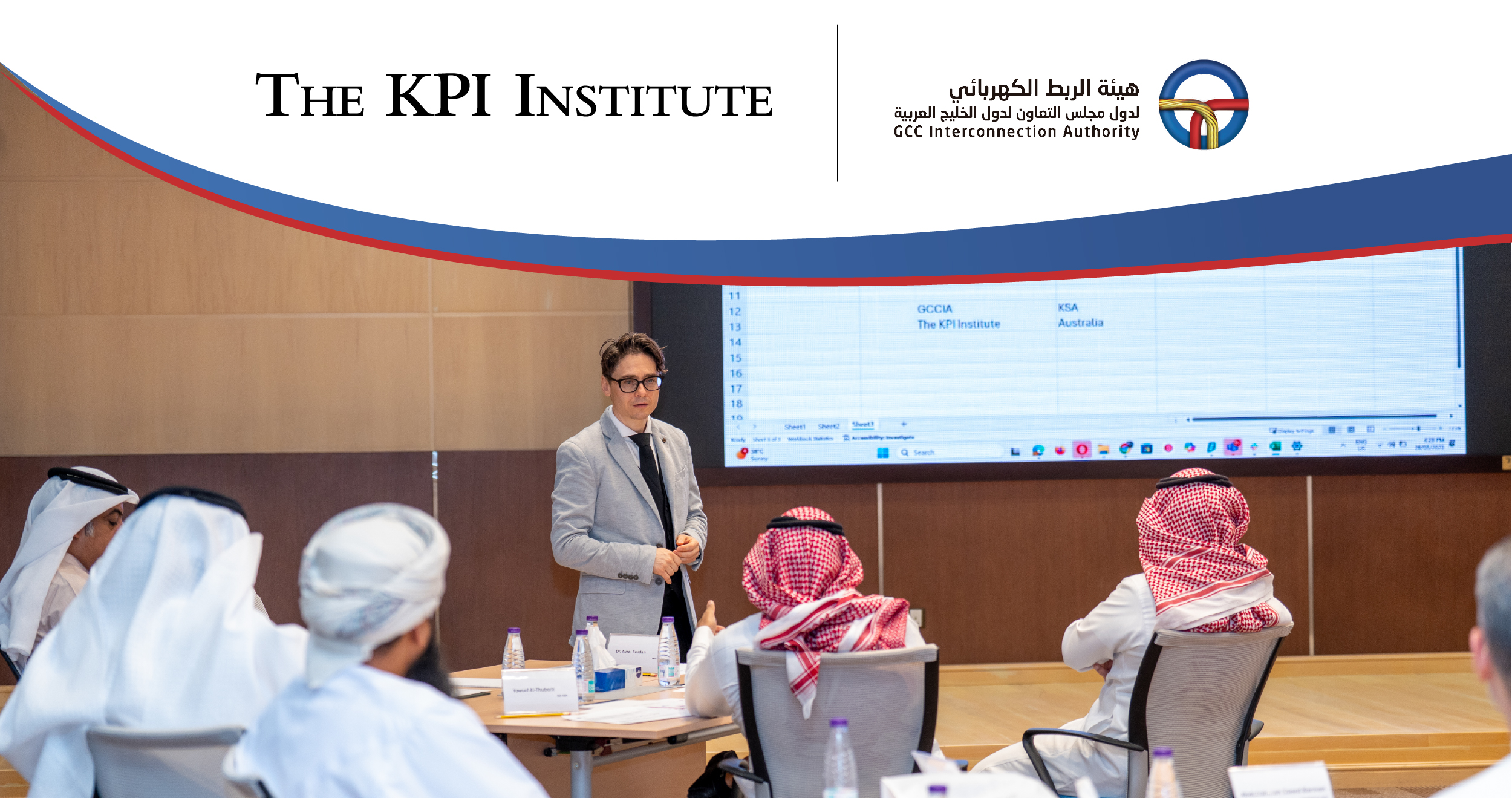
GCCIA, The KPI Institute launch strategy and performance community of practice
June 6th, 2025 Posted by Kimberly Tilar Events 0 thoughts on “GCCIA, The KPI Institute launch strategy and performance community of practice”
The Gulf Cooperation Council Interconnection Authority (GCCIA), in collaboration with The KPI Institute, recently hosted the first workshop in a series of events organized under the Strategy and Performance Community of Practices for the GCC utilities sector. The session focused on advancing strategic planning and performance management across the energy and water facilities in the region.
The event brought together industry experts and professionals in strategy and performance management to explore best practices, emerging trends, and innovative approaches aimed at enhancing organizational resilience and sustainable growth within the energy and utilities sectors.
With the workshop title, “Best Practices and Emerging Trends in Strategic Planning and Performance Management,” Dr. Aurel Brudan, CEO of The KPI Institute, facilitated the workshop in the headquarters of GCCIA in Dammam, Saudi Arabia, on May 26, 2025.
The program was divided into three main parts. In the first workshop, “Best Practices in Strategy & Performance from the GCC Region,” Dr. Brudan led an engaging session centered on the evolving role of strategy and performance management practices of the utilities sector in the GCC region. Key topics included the operating model for strategy and performance, best practices—highlighting both successful and unsuccessful examples—challenges faced by strategy teams in the context of the energy sector and regulatory mandates, as well as essential performance capabilities and lessons learned. Furthermore, the discussion emphasized the growing need for utilities to align their strategies with national development goals and emerging policy directions.
The session also spotlighted trending best practices and the increasing influence of artificial intelligence (AI) in the sector. From AI-driven innovations to the identification of critical success factors, participants gained valuable insights into how technology and governance frameworks can shape a more agile, efficient, and future-ready utilities industry in the GCC. The AI Enablement Framework was also introduced. This framework supports organizations in navigating their AI journey, starting with implementation readiness and culminating in a tailored AI strategy.
Building on the momentum from the first session, the second workshop, “Best Practices in Strategy & Performance at International Level,” shifted the focus to global trends and strategic execution within the utilities industry. Dr. Brudan guided participants through key topics such as “Global Strategic Trends in the Utilities Industry”, “Key Performance Indicators (KPIs) for Global Utilities,” and “Governance and Accountability in Strategy Execution.”
Additional themes included cross-functional alignment, strategy-related best practices, and the introduction of Functional Area Enablement Labs, an organization dedicated to improving operational efficiency across various functional areas. Participants also explored common barriers to effective KPI implementation, best practices for enhancing transparency and accountability, and the growing role of data analytics and AI in embedding resilience into core strategies.
Concluding the workshop series was the session titled “Wellbeing as Enabler of a Performance-Oriented Culture.” Dr. Brudan guided participants through an exploration of how well-being directly impacts trust, engagement, and organizational success. The key topics included are “The Cost of Neglecting Well-Being,” which can lead to burnout and high turnover, and “The ROI of Supporting Well-Being,” emphasizing that happier employees contribute to stronger performance outcomes. The importance of fostering well-being at both the personal and professional levels was also discussed, including the role of emotionally intelligent leadership in creating cultures of integrity and resilience.
The session also introduced the Institute for Life Management Science (ILMS) and Life Management Science Labs (LMSL)—organizations dedicated to applying scientific research to improve daily living and workplace performance. Through evidence-based frameworks and interdisciplinary tools, ILMS and LMSL aim to promote sustainable well-being and high performance. By leveraging the positive ripple effects of well-being-centered leadership, organizations can build more resilient, engaged, and productive teams in today’s evolving utility landscape.
Together, the three-part workshop series provided a comprehensive roadmap for utility leaders in the GCC region to navigate transformation with confidence. From strategic realignment and performance measurement to cross-functional integration and employee well-being, each session delivered actionable insights aligned with the region’s broader goals of sustainability, innovation, and economic diversification.
For organizations and individuals interested in partnering with The KPI Institute for the delivery of customized workshops, bootcamps, or training courses, please visit www.kpiinstitute.org or contact Cosmin Chindris, Director of Global Partnerships at The KPI Institute, via email: cosmin.chindris@kpiinstitute.com to explore potential collaboration opportunities.
